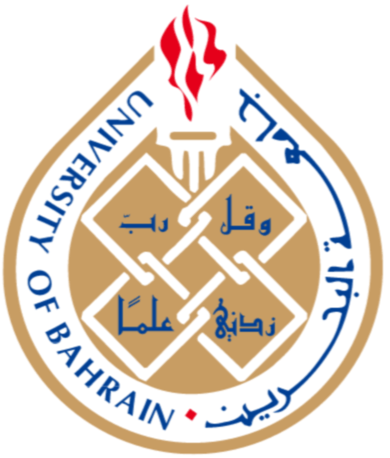ABOUT THE PROGRAM
- The duration of the program is one academic year consisting of two semesters.
- The student studies 3 subjects each semester, with a total of 6 courses.
- Each course is 3 credit hours, with a total of 18 credit hours for the program as a whole.
- Courses are taught in Arabic.
- Study in the program takes place in the evening.
- The duration of study for each course is a full university semester, meaning approximately 16 weeks according to the academic calendar of the University of Bahrain.
- The student is awarded a high diploma in special education from the University of Bahrain.
- To graduate from the program, you must complete all courses successfully and obtain a cumulative academic GPA of no less than 2.5
DETAILED STUDY PLAN
Press here to download the Study Plan (PDF، 0.1 MB، 1 Pages).
GENERAL PROGRAM OBJECTIVES
- The graduates of the Higher Diploma in Special Education will be prepared to promote innovative special education practice and learning using a variety of perspectives including assistive technology.
- The graduates of the Higher Diploma in Special Education will be prepared to apply different teaching and assessment strategies used in Special Education practices.
- The graduates of the Higher Diploma in Special Education will be prepared to participate in the development and evaluation of evidence- and research-based practices intended to improve the learning of pupils with special educational needs.
- The graduates of the Higher Diploma in Special Education will understand multiple research methodologies and how research is used to inform instructional practices with pupils with special educational needs.
- The graduates of the Higher Diploma in Special Education will become reflective practitioners who problem solve and change their practice to improve services provided to pupils with special educational needs and their families.
- The graduates of the Higher Diploma in Special Education will be prepared to deliver group facilitation and collaboration with a variety of stakeholders, including the students in their classrooms to improve services and outcomes for pupils with special educational needs.
PROGRAM INTENDED LEARNING OUTCOMES PILOs
- Examine relevant laws, local policies, and evidence-based practices that pertain to pupils with special needs.
- Create learning opportunities through planning experiences to facilitate the development of social, behavioral and academic skills for pupils with special needs.
- Analyze data to develop evidence-based practices intended to improve teaching, provide support and services related for pupils with special needs and their families.
- Apply assistive technologies to promote learning for pupils with special needs.
- Implement appropriate and various types of assessment and evaluation strategies to improve learning opportunities for pupils with special needs.
- Create partnerships with all concerned parties to promote collaboration in improving the outcomes and services of the programs provided for pupils with special needs and their families.
- Develop the necessary skills to make professional judgments and raise their awareness of the importance of continuous learning to serve pupils with special needs.
Withdrawal Procedures
- When a student wishes to withdraw from the study, they must follow the withdrawal steps during the withdrawal period specified in the academic calendar of the University of Bahrain:
- Contact the Ministry of Education via email: training_btc@moe.gov.bh to obtain the Ministry’s approval and then initiate withdrawal procedures electronically through the Student Information System (SIS).
Academic advisor
- Each student will be assigned an Academic Advisor from the academic staff.
- Your Academic Advisor will work with you and your professors to help you during your academic journey.
- You can visit your supervisor during their office hours. If the times are not compatible with your time at the college, you must request an appointment to see them.
- You can discuss with your advisor your academic concerns or anything that is not clear to you regarding the rules.
- It is not the advisor’s job to help you if you feel that the results of your tests or projects are unfair, nor can they talk on your behalf with your professors about their teaching or evaluation methods.
- If you encounter a problem with the course professor’s teaching or evaluation method, you must talk about your problem and discuss it directly with the course professor during their office hours or at a time you schedule with them. If the problem is not resolved, you can raise it to the department head for follow-up.









